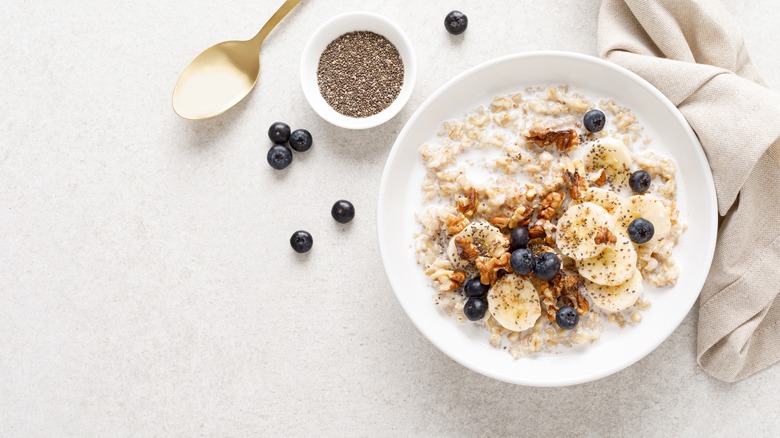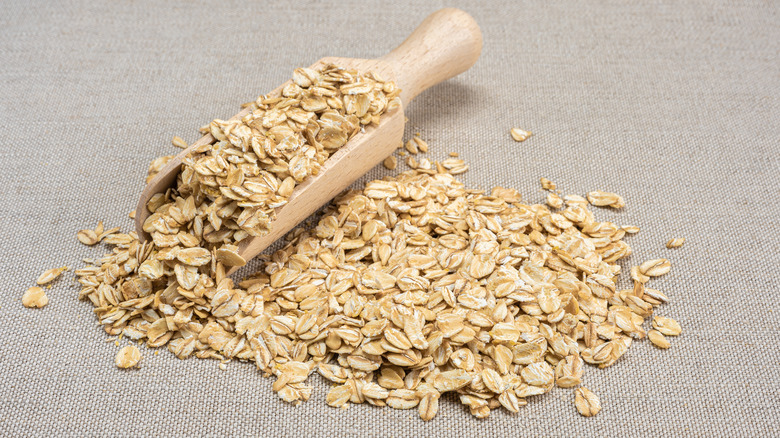The Real Reason January Is National Oatmeal Month
Barflies sip on pints of oatmeal stout. Breakfast fans with an eye for aesthetics layer mason jars of overnight steel-cut oats recipes. Grandmas compete for the best oatmeal raisin cookie recipe. Maybe instant oatmeal saved you in college.
Whatever your relationship with oatmeal, it's a great example of truth in advertising. According to Merriam-Webster, oatmeal is literally "a meal made from oats" — a simple combination of oats and milk or water. As The Dairy Alliance explains, all types of oatmeal start out in the same form, called an "oat groat." From there, oats' differentiations depend on how they're processed. For instance, thick steel-cut oats are made thinner during production and absorb water more quickly, cooking faster than other types (per MasterClass).
Oatmeal's simplicity hasn't hindered its popularity, and the food has been enjoyed for generations. In 1877, Quaker Oats became the first registered American oatmeal company. "Many foods fall in and out of favor as health trends come and go," observes WebMD, but oatmeal has not. Bertram, Texas has hosted an annual Oatmeal Festival for nearly 50 years. And January is National Oatmeal Month. Here's why January is the perfect fit for the dish.
A win for a colder month
Folks buy more oatmeal during January than any other month, according to Days of the Year. It's a huge plus, especially considering people could use extra nutritional benefits during this time of year; Theraflu pinpoints winter months as the height of cold and flu season. Apart from the instant oatmeal packets that are loaded with added sugars, oatmeal in its pure form boasts an impressive powerhouse of nutritional benefits (via WebMD).
Oatmeal can lower blood sugar levels, ease skin irritation, boost antioxidants, and aid in digestion. It's also often topped with healthy ingredients like blueberries (which are high in fiber and antioxidants, per Healthline) and walnuts (which are proven to lower bad cholesterol, says Robert H. Shmerling, M.D. of Harvard Medical School). The USDA recommends eating 6 ounces of grains every day as part of a healthy diet. If for no other reason than to get cozy, do your body a favor and celebrate January with a comforting bowl of oats or by making a warm slice of oat porridge bread.

